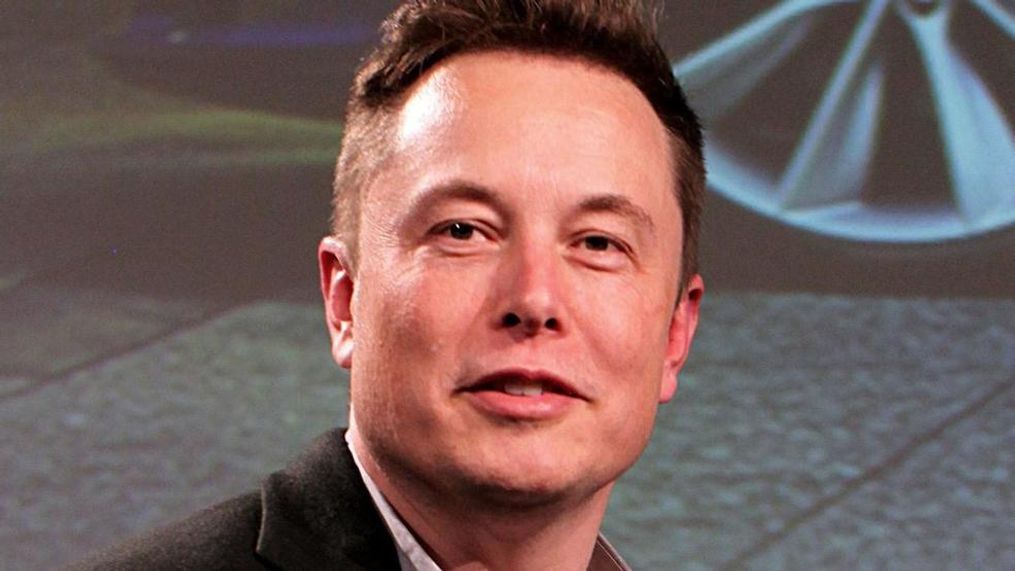What's next for Tesla? More stores, more repair centers and the Model Y

Plenty of insults have been hurled at Elon Musk. Tesla's CEO has been accused of being self-aggrandizing, thin-skinned and, given the number of projects he seems ready to tackle, a dilettante.
Tesla fans and foes can debate those labels as much they like, but one thing they can't accuse Musk of being is dumb. His smarts, his understanding of consumers, his ability to spot trends and his charisma have not only earned him legions of rabid followers but also helped him position Tesla as a leader in the electric, artificial intelligence-driven revolution.
ALSO SEE: Start-up builds an app to figure out how much that new engine noise is going to cost you
All that was on display this week as Tesla issued its first-quarter update and Musk held an earnings call with investors. The CEO and his team are clearly working to broaden the automaker's offerings in the near future, making it easier and more attractive for new consumers to buy into the brand.
So, what's down the road? Here are a few of Tesla's big plans:
More showrooms and service centers: Tesla says that in 2017, it plans to open "nearly 100 retail, delivery and service locations globally." While some of those facilities will be located in the U.S., many will be in new markets like Dubai and South Korea, which saw ribbon-cuttings for their first two outlets during the first quarter of the year. According to Tesla, this expansion will grow the number of company outposts by 30 percent.
Big production goals for the Model 3: Tesla's wider global footprint will come in handy as the company prepares to launch its more affordable Model 3 later this year. The company's first-quarter update confirmed facts that were disseminated back in February--namely, that when production begins, Tesla hopes to turn out 5,000 of the vehicles every week. At some point in 2018, that number will rise to 10,000. Given that Tesla had more than 370,000 reservations for the Model 3 (as of last year, anyway), it could take he company most of 2018 just to deliver pre-orders.
Tesla's first body repair shops: Tesla has long had service centers for owners who need smaller repairs or maintenance. For body work, though, Tesla has contracted with third parties to get the job done. Tesla plans to continue expanding its list of licensed of body work providers, but the company also intends to open its first Tesla-owned body shops before the end of 2017. That should be welcome news to longtime Tesla owners whose Roadsters and Model S sedans have begun to accumulate their share of dings, dents, and scratches.
Spotting problems before they start: Tesla vehicles are connected to a network, which allows them to receive software updates and also allows the automaker to run remote diagnostics on vehicles. That's helped Tesla identify problems with individual cars before they become big headaches--even before owners notice that anything's gone wrong. Tesla says that that's helped the company cut service times by 35 percent, and it plans to use remote diagnostics to improve that number further.
More Tesla mobile repair units: Because Tesla has built a new kind of car, it's had to build a new kind of service model--one that includes mobile repair units. (Which, to be fair, is probably better than asking owners to schlep all the way to a company-owned service center or to take their cars to a neighborhood garage that may have little-to-no experience working with Tesla vehicles.) Tesla already has a large fleet of service trucks, and it plans to add 100 more before June 30.
More charging stations: As we all know by now, one of the biggest hurdles standing between car shoppers and electric vehicles is range anxiety. Tesla is addressing that concern by boosting battery capacity and also by growing its charging network. The company says that "In 2017, we expect to at least double the number of Superchargers and Destination Charging connectors globally to more than 10,000 and 15,000, respectively."
The Model Y crossover: Speaking to investors this week, Musk said that the new Model Y crossover is expected to debut in 2020, though it could be as early as 2019. What's the holdup? Though the crossover had been slated to share a platform with the Model 3, on the call Musk confirmed that the Model Y will, in fact, be built on a completely new platform. That's largely so that the Y can ditch the 12-volt battery architecture that underpins current Tesla vehicles, which could streamline production and dial down costs.
Of course, all this information was delivered by Tesla, meaning that the company has had the opportunity to put the best possible spin on it. As such, there's plenty of room for doubt about the company's claims--for example, deliveries of new Tesla vehicles have always been chronically late, so Tesla's ambitious production numbers for the Model 3 can be viewed with a heavy dose of skepticism.
What this information does provide, though, is an overview of Tesla's self-imposed goals. Will the company meet them? Stay tuned.
You can download a PDF of Tesla's first-quarter update here.
Read more from Internet Brands Automotive:
